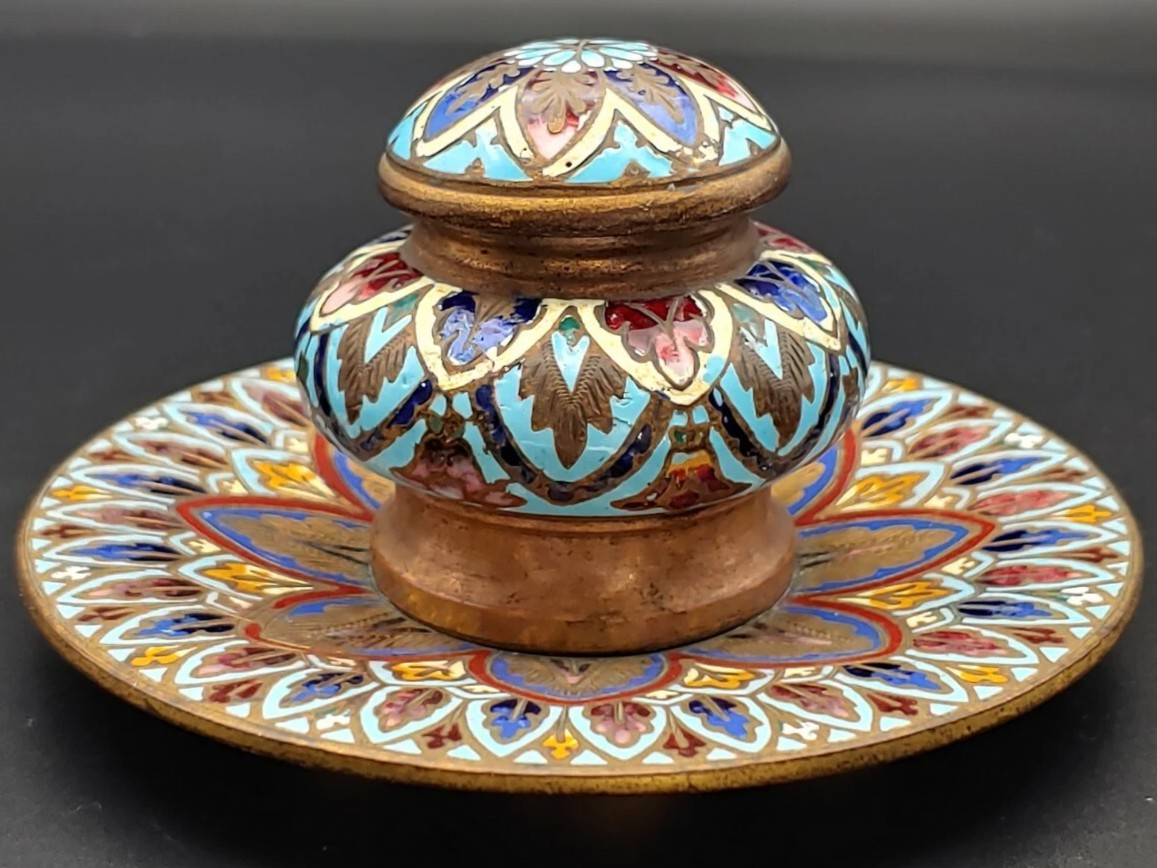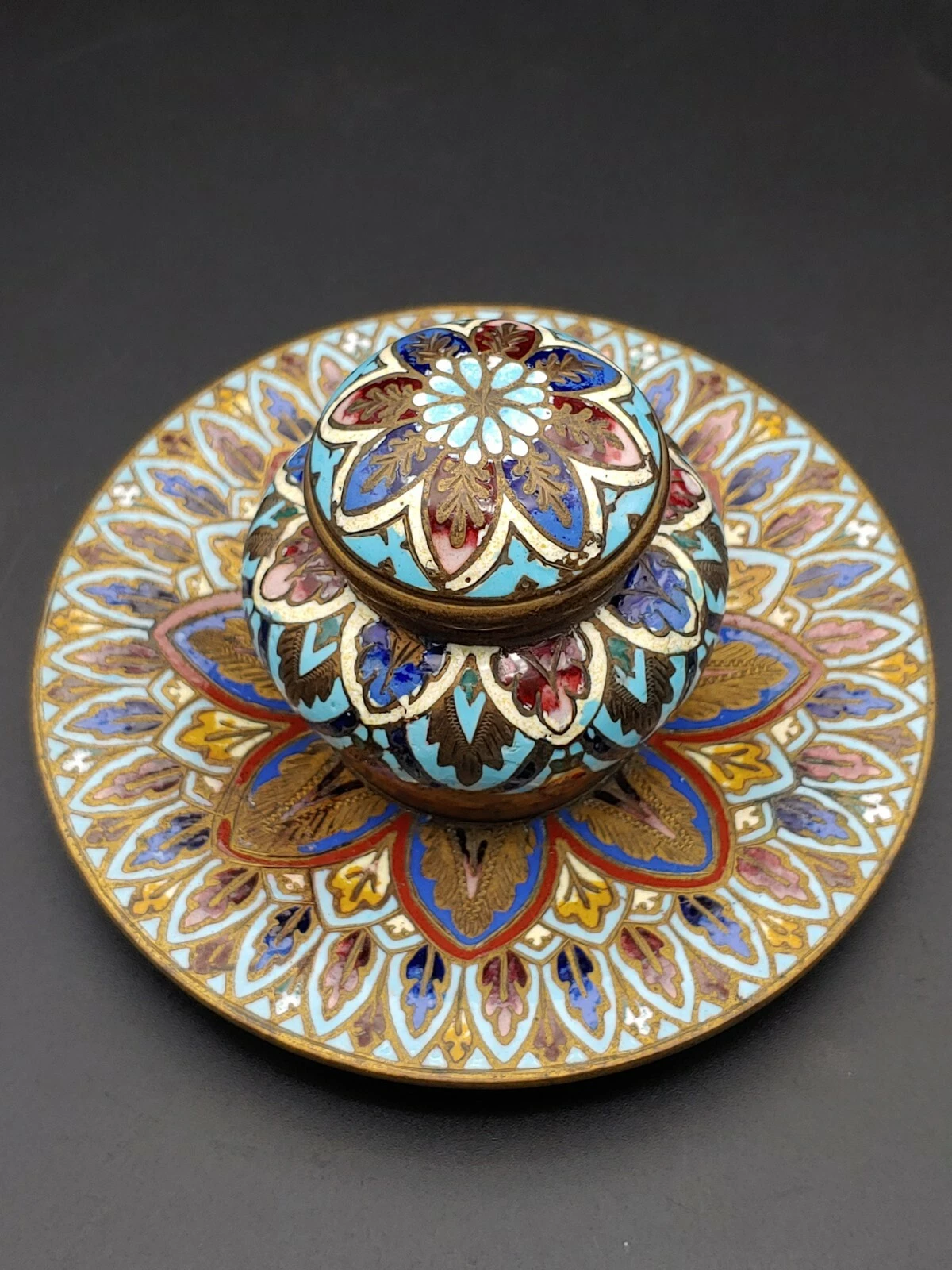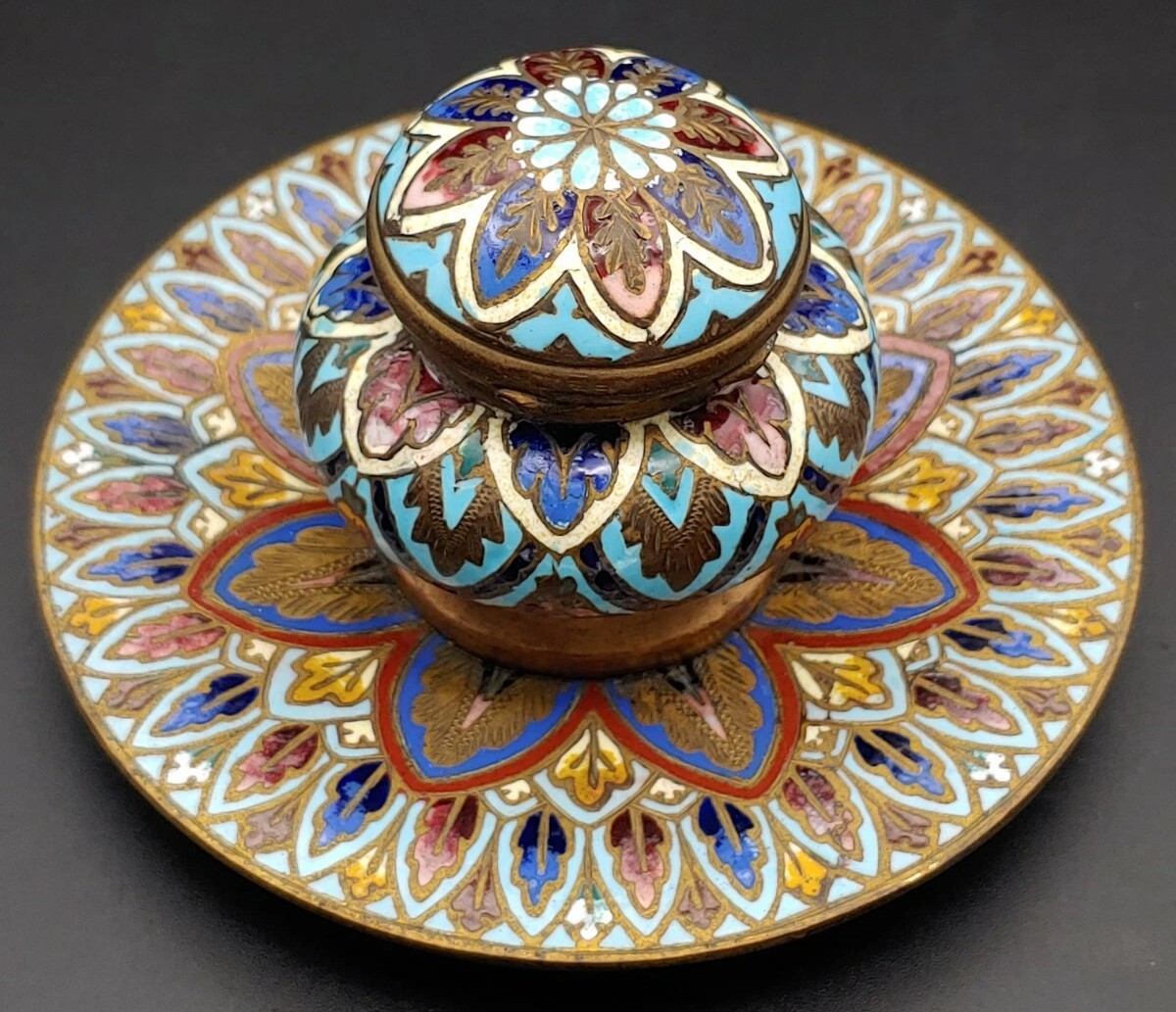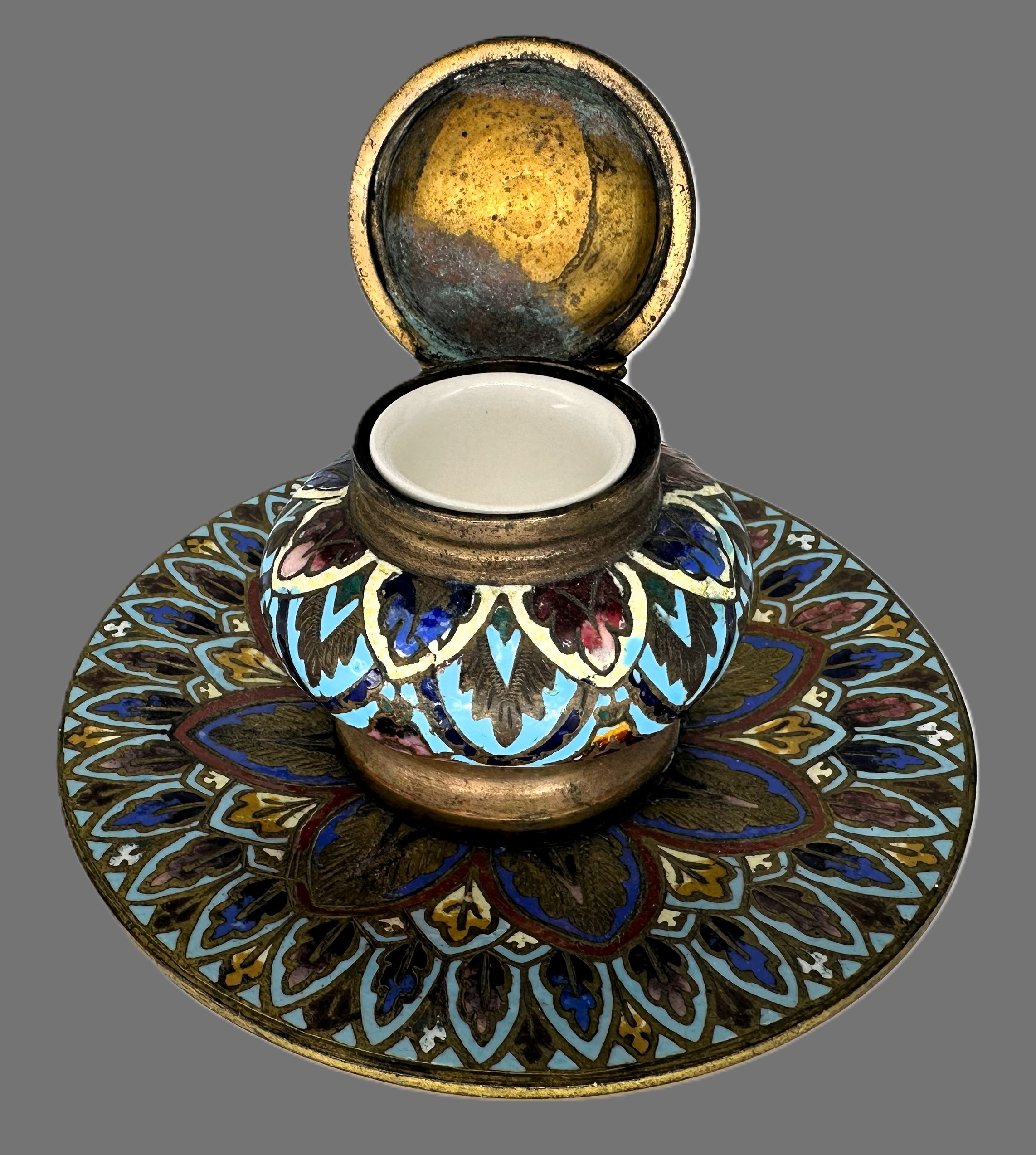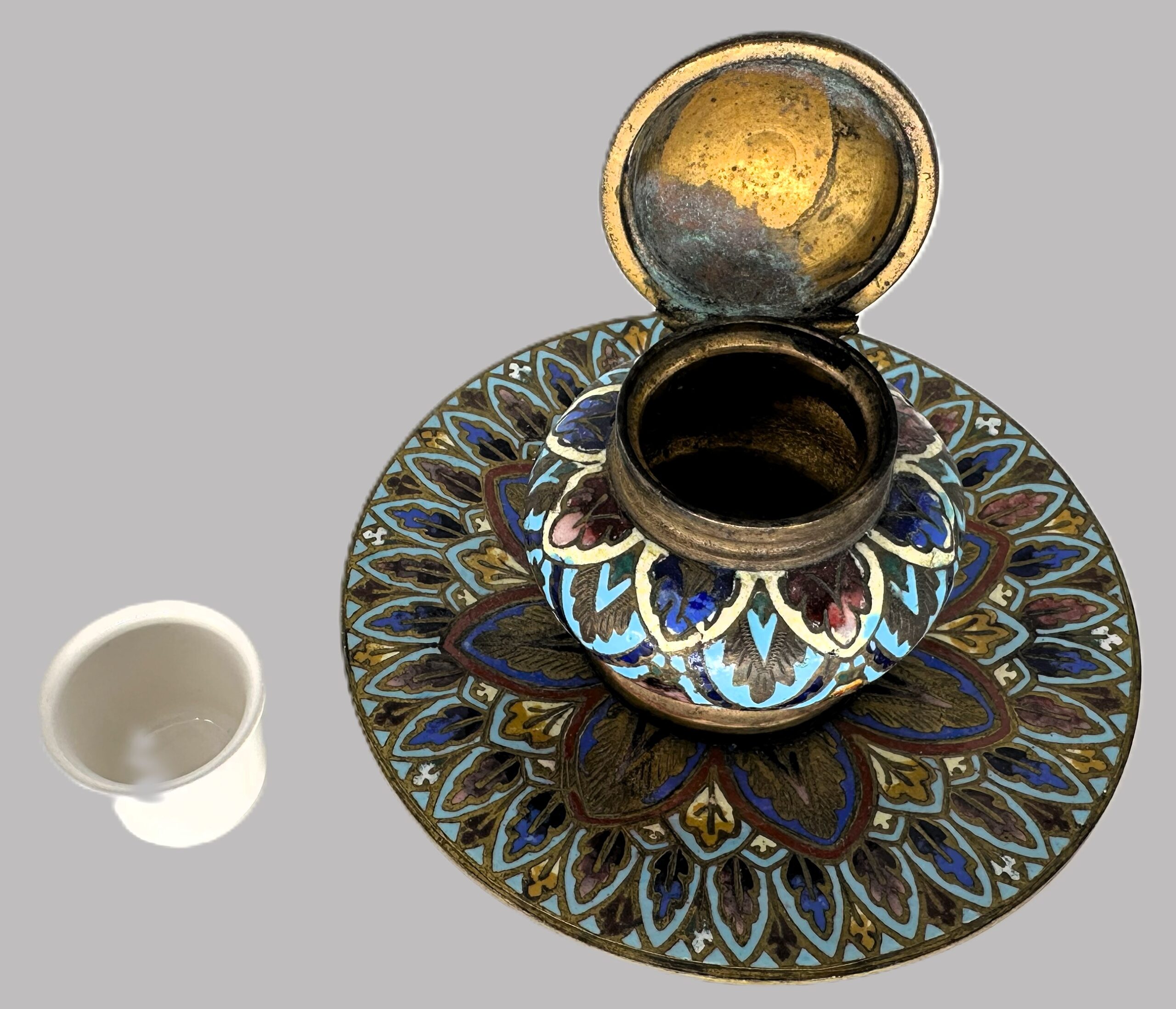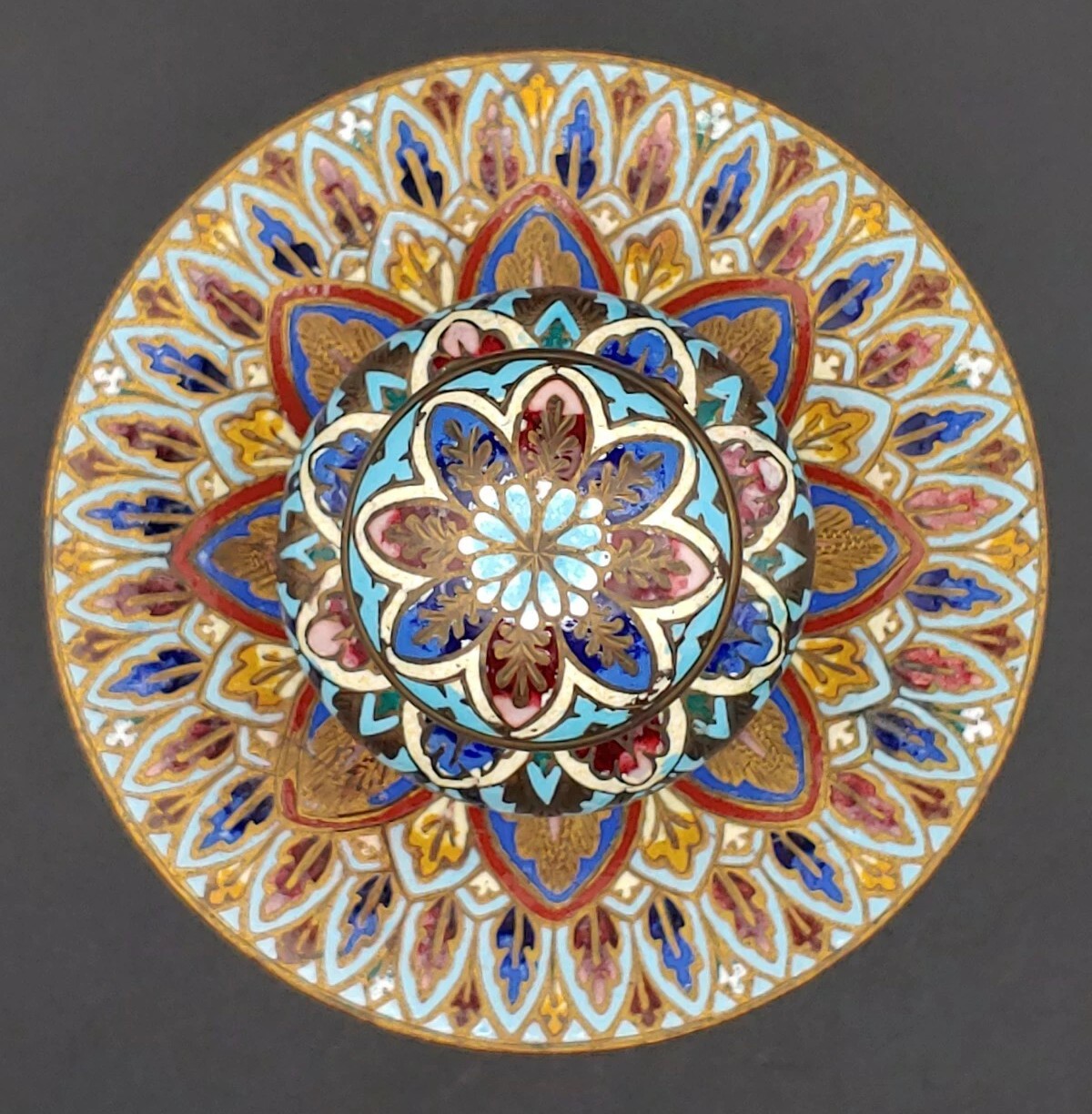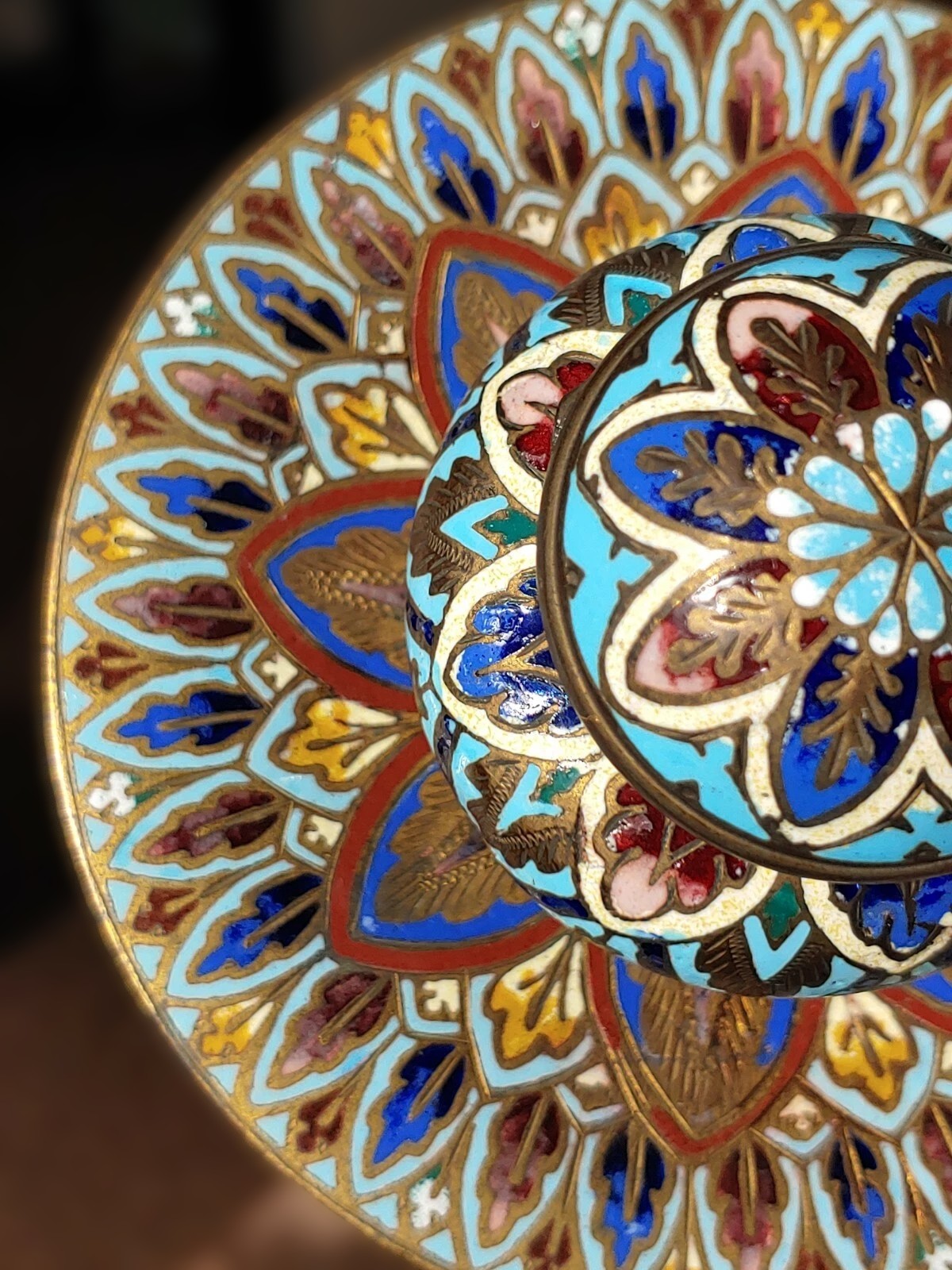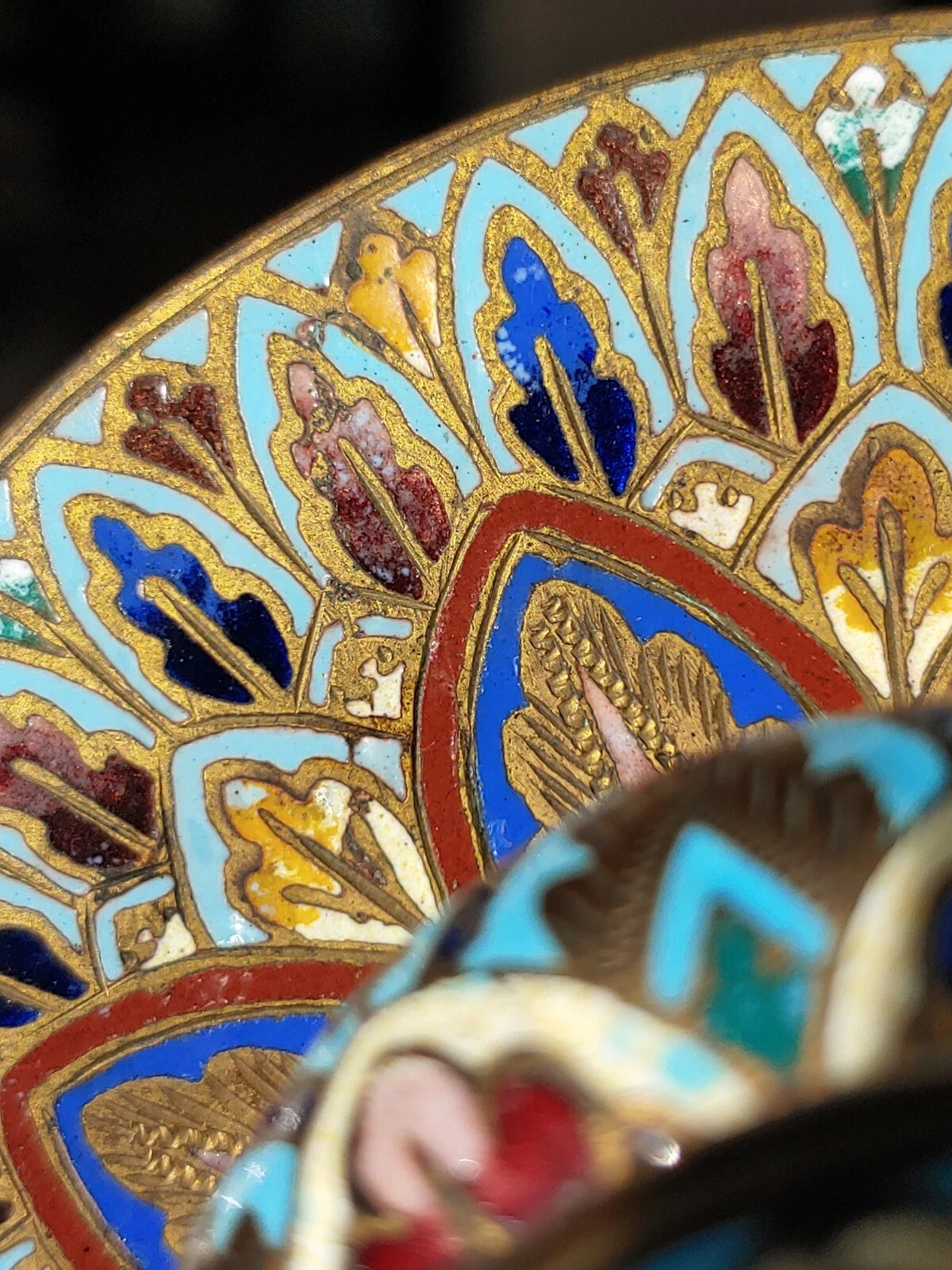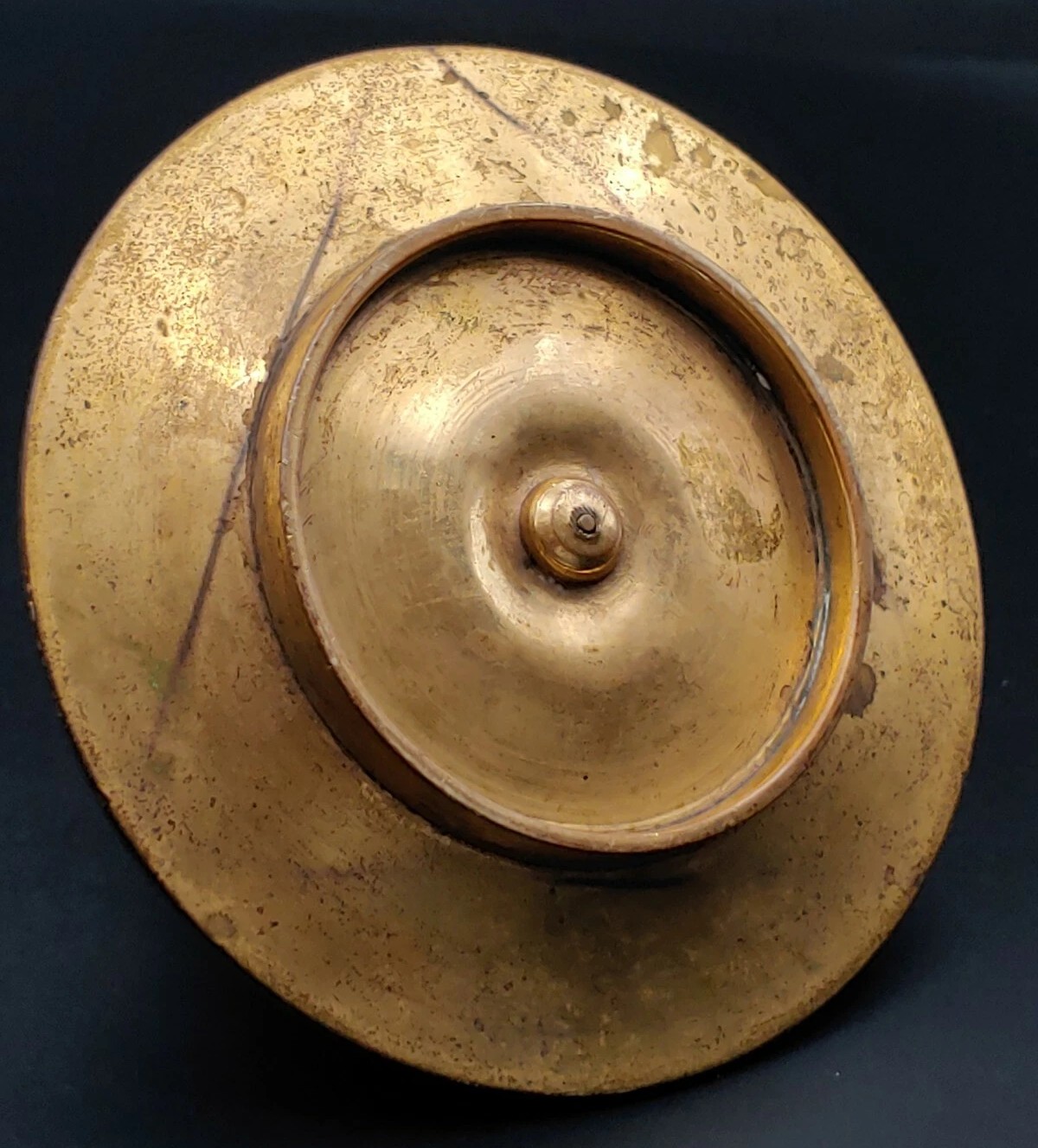
French Champlevé Enamel Inkwell
| Categories | Enameled Metal |
| Type | Champlevé |
| Material | Enameled Brass/Bronze/Metal |
| Markings | Unmarked |
| Manufacturer | Undetermined |
| Origin | France |
| Date or Era | circa 1890 |
| Measuring | 4 ½” diameter; 2 ½” high |
This ornate inkwell is an example of champlevé enameling, a technique in which depressions are carved or cast into a metal surface—typically bronze or brass—and then filled with vitreous enamel, fired to fuse, and polished to a smooth finish. The result is a richly colored, durable surface where the uncarved metal remains visible, forming elegant outlines and frames for the enamel designs.
Description
- Material: Cast bronze with champlevé enamel
- Structure: A domed inkwell mounted on a wide, circular base
- Design Motifs: Symmetrical floral and geometric patterns rendered in vibrant shades of blue, red, white, gold, and turquoise
- Interior: The lid opens to reveal a white ceramic ink reservoir
Cloisonné vs. Champlevé: Key Differences
| Feature | Champlevé | Cloisonné |
| Construction | Enamel is applied into recessed areas carved or cast into the metal | Enamel is applied between raised wire cells soldered to the surface |
| Surface Texture | Smooth and flush with metal; no wire ridges | Raised ridges between colors from wire outlines |
| Wire Work | No visible wires | Fine metal wires separate each color zone |
| Visual Style | Often features dense floral or geometric patterns with metal outlines as part of the design | Typically, more symmetrical, with stylized motifs like dragons or lotus |
| Origin | Common in French and Russian decorative arts | Strongly associated with Chinese and Japanese art |
This inkwell lacks the wire partitions characteristic of cloisonné, and the enamel is flush with the metal surface—hallmarks of champlevé. The dense, symmetrical floral motifs and the color palette are consistent with late 19th-century French production.
Estimated value: $75
Content disclaimer. The information posted is the owner’s best knowledge and may not have been vetted by the SOIC. We welcome comments, corrections, and additions, working to make our website information comprehensive and accurate.
Join the Society of Inkwell Collectors (SOIC) – it’s free!
Founded in 1981 as a non-profit organization,
we are documenting inkwells (and accessories).
We’re here to help and inform!
